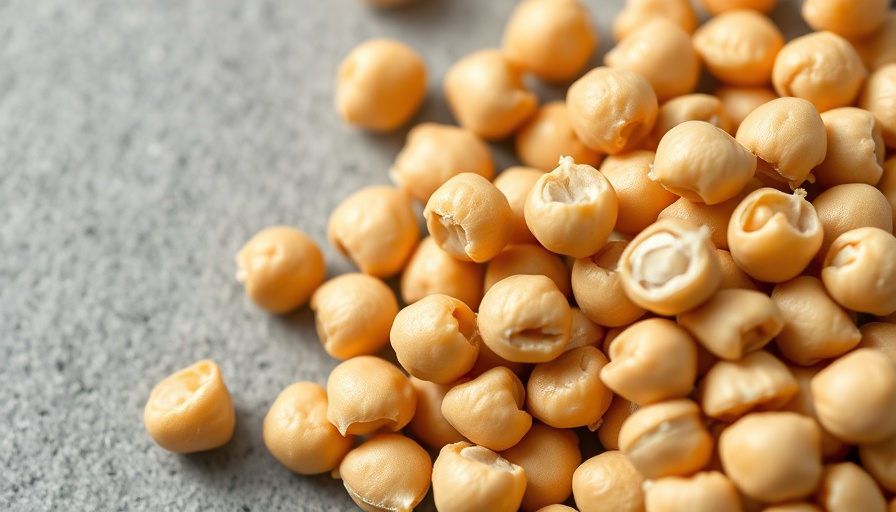
Discovering the Nutrition Powerhouse: Chickpeas
Chickpeas, often overlooked in the realm of legumes, are making a notable comeback in health discussions, and rightly so! While they might share the name 'pea,' the truth is, they’re beans and belong to a broader category known as pulses. These little legumes pack a powerful punch when it comes to nutrition, making them an excellent option for those looking to incorporate healthier plant-based foods into their diets.
The Protein Content of Chickpeas
When considering plant-based diets, one key concern that arises is protein intake. Fear not! Chickpeas have you covered with approximately 14.5 grams of protein per cup, accounting for around 20% of the daily protein requirement for an average adult weighing 185 pounds. This makes chickpeas a viable option for anyone hoping to build muscle or maintain bodily functions reliant on protein, such as immune response and tissue repair.
Why Fiber Matters: Chickpeas to the Rescue
Chickpeas not only shine in the protein department but also in fiber content—boasting about 12.5 grams per cup. This fiber is essential for maintaining healthy cholesterol levels, aiding digestion, and facilitating a feeling of fullness, which can help curb overeating. In an age where heart disease and obesity are rampant, the fiber in chickpeas is a preventive powerhouse. Unlike many animal-derived proteins, chickpeas are a significant source of dietary fiber, offering health benefits that shouldn’t be overlooked.
Chickpeas and Reduced Chronic Disease Risks
Incorporating chickpeas into your regular diet can have long-term health benefits. Studies suggest that individuals who consume higher amounts of plant-based foods, particularly legumes, exhibit lower rates of chronic conditions such as obesity, high blood pressure, and cardiovascular disease. This correlation has led nutrition experts to advocate for the inclusion of pulses like chickpeas in dietary guidelines on par with meat, emphasizing their role in promoting longevity and overall health.
Simple and Delicious Ways to Enjoy Chickpeas
If you’re new to cooking with chickpeas, don’t worry! They are versatile and can be easily added to a variety of dishes. From making a classic hummus to tossing them in salads for a crunchy texture, the possibilities are limitless. You can roast them for a tasty snack, mix them into soups for added protein, or blend them in smoothies to give a subtle nutty flavor without overpowering your drink. The ease of preparation paired with their health benefits makes chickpeas an ideal ingredient to explore.
Chickpeas: The Sustainable Protein Choice
In our environmentally-conscious society, choosing sustainable protein sources is a growing concern. Chickpeas are not only nutritious but also a sustainable option. Pulses require significantly less water than animal proteins and can thrive in less-than-ideal soil conditions, making them an eco-friendly choice that contributes to biodiversity and soil health.
The Future of Chickpeas in Dietary Guidelines
As awareness of the health benefits of plant-based eating continues to rise, it is likely that we will see more emphasis placed on legumes such as chickpeas within future dietary guidelines. The push for better inclusion of pulses in our diets reflects a broader desire to shift public perception and consumption patterns towards healthier and more sustainable food habits.
Conclusion: Embrace the Chickpea Revolution
In summary, chickpeas are a nutritional powerhouse recognized for their protein and fiber content, along with the diverse health benefits they offer. As we become more health-conscious and environmentally aware, including chickpeas in our diets seems to be an effective strategy not only for personal wellness but also for the planet's sustainability. So, why not give them a try in your next recipe? Your body—and the Earth—will thank you!
 Add Row
Add Row  Add
Add 




 Add Row
Add Row  Add
Add 

Write A Comment